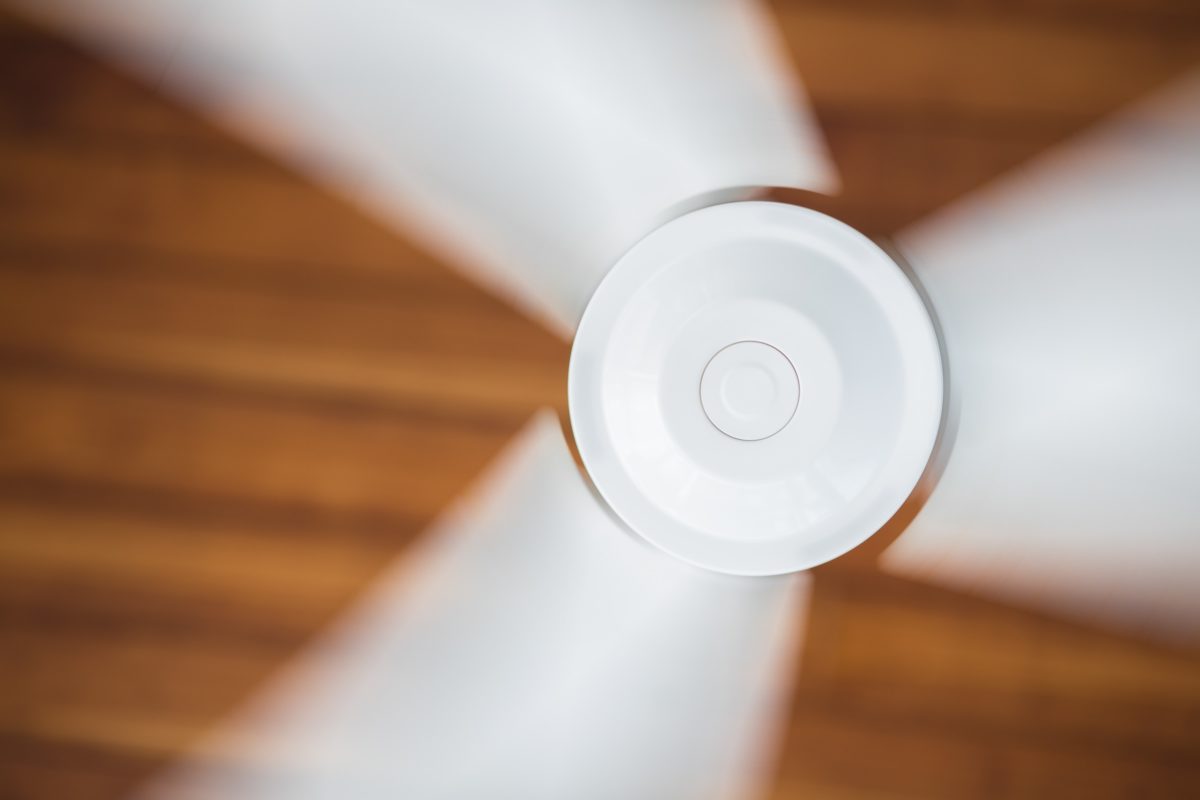Sleep with Fan: What are the Side Effects of Sleeping with a Fan on You?

Among many other vital functions, sleep helps you recover from the previous day’s activities and prepares you for the next day. But what happens when sleeping at night is impacted because your room isn’t cool enough? Is turning on your fan a healthy option for creating a cool sleep-friendly environment?
It’s hard for many to imagine sleeping without a fan blowing full blast during long, hot summer nights. And if asked, most will say that a fan cools down their bedroom. According to our data, 76% of SleepScore members think so. But what are the pros and cons of sleeping with a fan?
Let’s find out.
Sleeping with a fan on: Pros
Here are some of the ways sleeping with a fan may improve your sleep.
1. Promotes Comfort
A fan circulates air around the room and may make the room feel breezy and ideal for relaxing and diving deep into a night of blissful sleep.
If you keep tossing and turning on your bed, all you may just need is a refreshing windy environment that makes you feel like you’re sleeping by the beach. And turning on your fan may create this effect, make you feel less restless, ease your body, and prepare it for sleep.
2. Keeps You Cool
Another big reason to sleep with a fan on is that it’ll keep your room cool yet cozy at night.
Research suggests that using a fan is a more sustainable, cost-effective, and environmentally friendly way to cool your body than an air conditioner. So, when you use only a fan, you’re not just promoting better sleep for yourself, you’re also saving costs and the environment.
3. Creates White Noise
Sleeping with a fan on may help you fall and stay asleep if you live in a noisy environment. The whirring of the fan may be similar to white noise, which can help drown out external noise that may disrupt your sleep.
Numerous studies suggest that white noise reduces the effects of sleeping in a noisy place and improves sleep quality.
If you find it hard to sleep, going to bed with the sound of your fan may help you have an undisturbed sleep. This method is especially beneficial if you can sleep in a room that’s not perfectly silent.
4. Promotes Air Circulation
Another way to keep the room well-ventilated is by sleeping with the fan on. A fan circulates air around the room that not only freshens up your space but also makes your room feel less stuffy or suffocating.
Sleeping with a fan on: Cons
Can going to bed with the fan on ever be a bad idea? Let’s look at the potential reasons why you may think twice before sleeping with a fan on.
1. May Trigger Allergies
Sleeping with a fan on circulates air, dust, pollen, and other allergens.
If you’re prone to having allergies, sleeping with a fan on may trigger allergic reactions, worsen your symptoms if you have a condition like hay fever or asthma, prevent you from having a quality sleep, and impair your wellbeing.
2. May Produce Congestion
Sleeping with a fan on may trigger nasal congestion because the breeze from the fan may dry out the moisture from your nose and throat. So, you may experience a stuffy nose, headache, sore throat, snoring, watery eyes when you regularly sleep under a fan.
3. Dries Skin
Another drawback to sleeping with a fan is that the air it circulates may also evaporate moisture from your skin and keep it dry.
This may cause skin dryness and irritation. But you can tackle this by adequately moisturizing before bedtime to replenish and hydrate your skin.
Fans are definitely not for everyone. If the air it blows around or the noise it makes irritates you, then getting a fan may not be a good choice. You can, however, try a few of these ideas instead:
- Cool yourself down before bed by running your hands and feet under lukewarm or cool water. You can also take a lukewarm or cool shower.
- Try pajamas that are loose-fitting or designed to keep you at the optimal temperature.
- Swap your heavier blankets or sheets for something lighter.
The CDC recommends that in hot temperatures, you shouldn’t rely on using a fan alone to keep you cool. Because while they may give you this effect to an extent, they may not prevent you from contracting heat-related conditions. You can check out our top 10 favorite summer sleeping hacks for more creative ways to beat the heat.